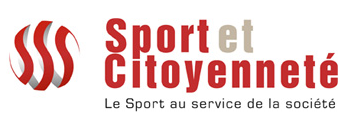Nordic countries are often being presented as role model. What is the impact of sport on Finnish society and people daily life?
HT: Sports and sports related activity is Finland’s biggest “national movement” and it can be seen in daily life in various ways. This is evidenced by the considerable amount of space in daily newspapers, as well as news programmes, that is devoted to sports coverage. Sport as a health promoting activity is very fashionable in Finland, in both the public and private sectors. Through sports, it is easy to convey values related to health and tolerance. Sport greatly influences and supports activities aimed at fighting against racism, anti-Semitism, xenophobia, homophobia and other forms of discrimination.
You were among the five MEP who launched the Written Declaration to increase EU support for grass-root sport which has been adopted on December 16, 2010. What do you expect from this Written Declaration?
HT: At the moment, the role of sport is fairly minimal at the EU-level, despite its new legalbase, or the "supporting, coordinating and supplementing competence" that sport now has, which was outlined in Article 165 of the Lisbon Treaty. It is nevertheless good that the importance and impact of sport on the society as a whole has been formally acknowledged at EU-level. Given the tight economic times, we were aware of the budget related challenges, and therefore my sport enthusiastic colleagues and I wanted to launch the Working Declaration (62) on “Increased European Union Support for Grassroots Sport”. We especially wanted to highlight the voluntary and grassroots side of sports, because too often people associate sport with elite organisations, elite athletes and elite competitions such as the Olympics. Indirectly, we also wanted to emphasise the fact that sport has such enormous health benefits. My view has always been that a euro spent on sport will save at least two euros in social- and healthcare related costs. Among the main health areas which sport can play a major role include tackling weight problems, obesity, and chronic conditions such as cardio-vascular diseases and diabetes that arise from them. These must especially be tackled at the grassroots level. We must make investments in sports since it will always save us money in the long-term and improve Europe’s competitiveness. The working declaration which was signed by some 400 MEP’s has helped to bring these issues to the wider attention of politicians as well as the general public.
But how will the political will for building an EU sports policy that should benefit European citizens and European society as a whole result in concrete actions without a specific budget being?
HT: This is the big challenge. It is not easy. As I mentioned we hope that our WD will further bring all the positive sport related issues to the attention of politicians and the wider public. However, I am afraid that various member states are currently ignoring the general principles and advantages of sport and it seems they are pushing sport completely to the voluntary sector. The voluntary sector is responding to the challenge very well but we equally need centralized action, precisely due to the many advantages that sport brings to the table. By presenting evidence of the benefits of sport to a wider public we can create stronger and increased support within the EU. The Commission has made consultations with the EU general public on the matter of sport and has recognized the advantages it offers to citizens. Hopefully, we will also soon get a budget for sport which will allow us to steer sport related issues and actions even more to the forefront.
The integrity of sport seems to be more and more threatened. To your mind what could be done to safeguard sport values in Europe?
HT: If we look at the entire field of sport, it becomes evident that the “negative” issues- game fixing, doping, etc. - account for less than 10% of the whole. Nevertheless, taking into consideration the positive values that sport stand for, even 1% is too much. To tackle these threats, supervising bodies such as WADA have been established, which take into account the particular characteristics of different sport competitions and types of sport. Another example is stronger enforcement of regulations regarding player transfers and agents. There are mechanisms in place in many sport areas which constantly evaluate and improve the integrity of sport and try to eliminate elements that are against the basic values the sport tries to convey. I would like to emphasize, however, that when we talk about sport at the EU-level, we try to concentrate on grassroots level issues much more. There is very little negativity in this area. If the integrity of sport is threatened it is only so in relation to professional sports. Nevertheless, this matter does concern me and we discuss it at the Committee meetings in the European Parliament as well.
Interview by Carole Ponchon



Follow the comments: |
|
